Categories
Latest Updates
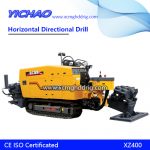
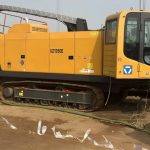
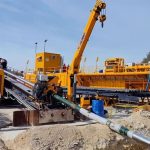
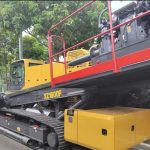
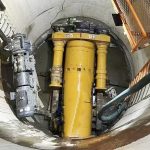
Hard rock is challenging, coal rock geology is complex, and deep hole precision control is challenging… Mines in many provinces of my country face their own challenges in drilling. XCMG’s crawler-type fully hydraulic tunnel drill rigs for coal mines Using superior performance to overcome local challenges, they have delivered excellent results in both efficiency and safety in many locations. Guizhou: …
In an underground pipeline construction project along the coast of a Middle Eastern city, the XCMG XZ1350E horizontal directional drilling rig (HDD) efficiently completed the pipeline laying task, ensuring on-time project delivery and earning widespread local acclaim for its outstanding construction quality. The coastal strata in the construction area are soft, with severe groundwater infiltration. The complex and variable geological …
Recently, a XCMG XZ5060 horizontal directional drill (HDD) successfully completed a critical pullback operation during the construction of a DN711*1300m oil pipeline project in Liaoning Province. This pipeline project serves as a critical link between energy supply and consumption. Upon completion, it will significantly reduce crude oil transportation costs and significantly enhance energy transportation capacity in Liaoning Province and the …
The Xiamen Water Supply Project is currently underway. The XCMG XZ1600F horizontal directional drilling rig, with its powerful power and precise drilling capabilities, delivers a single drill rod in just 3 minutes, achieving an average daily drilling speed exceeding 100 meters. With its high efficiency and stability, it has become a core tool for project advancement. The Xiamen Xiang’an Water …
The project involves the construction of new drainage pipes with diameters ranging from DN300 to DN2600mm, totaling approximately 1,700 meters. The pipe jacking construction section will be 815 meters long. To address issues such as cutterhead blockage and poor mud drainage caused by sticky mud in dry rock formations, XCMG technicians, taking into account local geological conditions, innovatively developed a …
With the XCMG XDN1800-R pipe jacking machine, the cutterhead precisely reached the designated location in the receiving well, successfully completing the pipe jacking section of a single water conservancy project in Hunan Province. This marks a crucial step toward the project’s goal of water supply. The project, with a total length of 1,147 meters and a single jacking distance of …
The main tower of Pier Z4 of the Ma’anshan Yangtze River Bridge on the Chaoma Railway has been successfully capped, with XCMG’s XGT15000-600S crane lifting a 98.5-ton steel tower segment to over 300 meters for precise docking and installation. All three main towers of the bridge have now been capped, and the cantilever erection of the steel beams is about …
Crossing steep slopes and cascading waterfalls, more than ten XCMG S1 series tower cranes stand tall on the eastern foothills of the Taihang Mountains, supporting the construction of the Xiongxin High-speed Railway. The Xiongxin High-speed Railway is Shanxi Province’s first 350 km/h high-speed railway and a crucial component of the Beijing-Kunming Corridor, a key corridor within my country’s “Eight Horizontal …
Amidst the vibrant spring scenery and rippling blue waters, the majestic north main tower of the Wuhan Shuangliu Yangtze River Bridge is rising from the ground. Two XCMG XGT2230A-100S cranes are efficiently and accurately assembling the tower columns, accelerating the construction of the bridge’s north main tower. With a main span of 1,430 meters and a designed height of 211.78 …
With the continuous deepening of urban modernization, urban underground pipelines (such as sewage pipelines, water pipelines, gas pipelines, heat pipelines, power cables and communication cables, etc.) will become more and more dense, forming a huge underground pipeline network system. Since the service life of all pipelines is limited, when they are used for a certain period of time, they will …
The construction process of horizontal directional drilling can generally be divided into three steps: pilot hole drilling, pre-expanding, and pipeline pulling back. The quality of the pilot hole trajectory directly affects the size of the pullback force, and the risk avoidance of directional crossing is largely reflected in the construction process of directional drilling. Therefore, only by mastering advanced steering …
With the development of trenchless pipeline construction technology, the problem that large-scale slope excavation or support excavation cannot be carried out in the main urban area has been solved. This paper mainly studies the application cases of pipe jacking and directional drilling and hosting technology in hydraulic engineering in trenchless pipeline construction technology, and analyzes the cost of the two …
